#muse talks for a LONG TIME
Explore tagged Tumblr posts
Text


















Cassandra and But Daddy I Love Him being two sides of the same coin
#taylor swift#cassandra#but daddy i love him#the tortured poets department#ttpd#gifs#taylorswiftedit#tswiftedit#tsedit#ttpdedit#ts lyric weaving#useramys12#addys-beth#userjake#tuserella#userdanahscott#tsuserannie#userfarahz#userlindsay#talked about this with jo many times and had the gifset written down in my notes for months it just took so long cause i couldn't decide on#execution but i went with this AND I SWEAR TO GOD if i get another person saying 'um actually that's not the song she's singing in that#footage' i'm gonna strangle someone EXCUSE YOU I JUST WANTED IT TO ACTUALLY LOOK GOOD MAKE YOUR OWN GIFSETS#anyway they are thematically intertwined and it's really important to me i could talk forever about this#vipers are vipers whether they're in empath's clothing or not#getting prayers when you don't need them is just as bad as not receiving any prayers when you do need it#whether they're pretending to care about you or making you their enemy people's goal is ultimately to cage you#to keep you from stepping out of line#but daddy i love him is like fuck you you didn't give a shit about me before and i actually preferred that to you pretending to care i'm#gonna burn my OWN life down and get the fuck out of here and never think about any of you ever again (things you'll hear from a rep girlie)#this also works as cassandra being the muse in but daddy i love him
215 notes
·
View notes
Text
a little comparison of our storm king candidates talking to orotine at the ball
first: tarvek
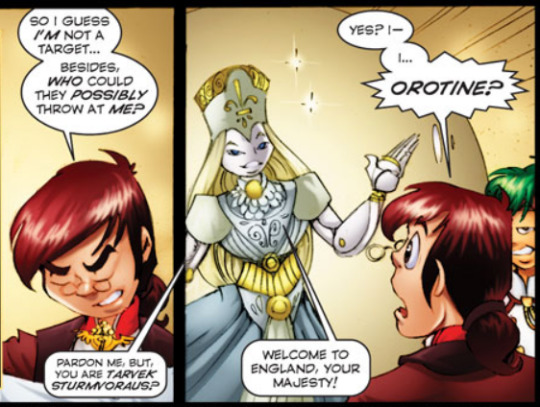
so we only get a brief glimpse of their interaction, but right away Tarvek not only recognizes her, but knows exactly which muse she is. Aside from lineage, Tarvek's relationship with the muses is probably his strongest claim to the lightning crown. he seems to really genuinely love and revere them [in the next panel seffie overhears him squealing<3] which makes him suggesting orotine talk to gil later a pretty significant gesture
but even more interesting is how Orotine addresses him. As a prince, his correct styling would be "your highness", but instead she calls him "your majesty", a form of address almost exclusively reserved for *monarchs*. so that's pretty big for his claim!
next: martellus
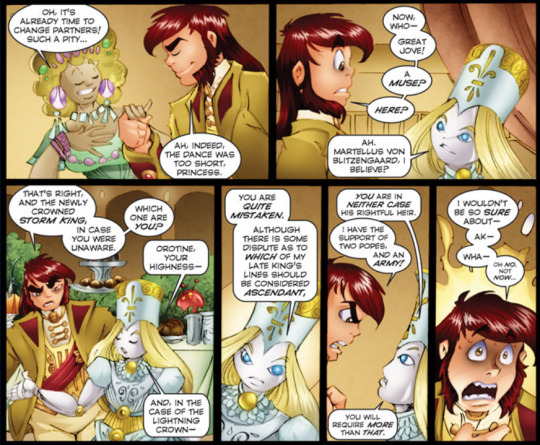
no respect! Martellus immediately starts trying to pull rank and assert his authority, then he asks "which one are you?" which is a rather brusque way to phrase the question! also, if your whole deal is trying to ascend to the lightning crown, it would probably behoove ypu to know things about the muses given how central they are to the storm king legend. he seems to view their support as a given rather than something he has to earn.
Of course Orotine politely smacks him back down to earth, beginning by addressing him as "your highness" not "your majesty", then revealing that the race for the crown is not just between him and tarvek; there are more options [and of those options tweedle is losing]. no matter his political alliances or threats of force, he will require more than that to truly earn the title.
last but most squertainly not least: gil
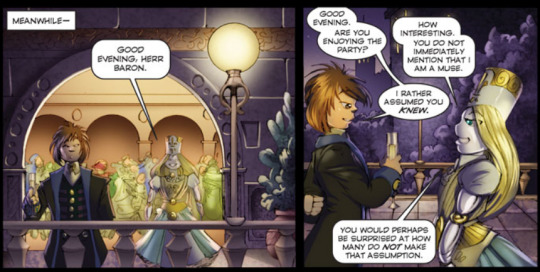
Orotine styles Gil as "herr baron", nothing notable ab this one as that is his correct and publicly acknowledged title [tho i will footnote that traditionally a lord/lady would be addressed by thier highest title since historically it was common for nobles to hold multiple titles, and technically for gil this would be "your highness" as revealed by Boris but in practice his actual power comes from the empire's holdings and the the title that comes w that is baron, even though its technically a lower rank.] that was a long footnote who said that
Gil treats her with the same polite friendliness he does with the other party guests, respecting her as a person. There's even light discussion of scheming, the core of any friendly political conversation.
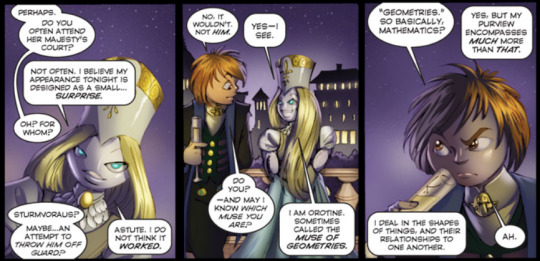
And here's where we can really contrast him with martellus: Gil is not actively vying for the storm king title, so its natural that he doesnt necessarily all of the muses, but when he asks, he says "and may i know which muse you are?" a way to phrase the question which is not completely rude, take notes tweedle!
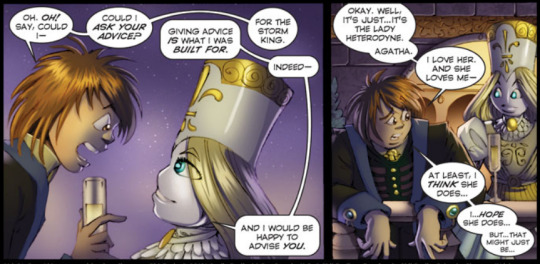
Gil defers to her area of expertise and ask for advice, but in bringing up the storm king acknowledges her right to refuse, giving her a polite way out.
And what a response Orotine gives! not just stating her purpose but that she would be *happy* to advise him. Tacitly but strongly acknowledging his claim to the lightning crown and therefore her potential allegiance!
#pizza talk#girl genius#long post#i should look at all the muses interaction w the stormy boys/discussion of the crown but i'll do that some other time#had to take a break from working on my quata'aras these guards are kicking my butt rn
232 notes
·
View notes
Text
The TTPD Deep Dive (Part ?)
It’s no secret that I have a lot of Thoughts about The Tortured Poets Department and it has lived rent-free in my head since it came out earlier this year. I’m absolutely blown away by how underneath the chaos, it’s actually an exceptionally cohesive story and is probably the closest to a concept album Taylor has ever done.
There are so many themes that have stood out to me over the last five months, and there’s one in particular that I think not only drives the entire album, but ties into previous albums to help deepen understanding of it.
This is it, my fangirl magnum opus, my months of posts consolidated into one place. This is also my disclaimer that this is just my interpretation of the album, and my summary of the story it tells, and I don’t pretend to have any special insight or authority. I’m not saying I’m correct at all, do not take any of this as fact, it’s just what it sounds like to me, and these are my silly not-so-little thoughts about it.
(Under a cut because it’s way too long and involves discussion many may not care for or be sick of.)
Come one, come all, it's happening again (I'm thinking too hard about Taylor music)
The overarching theme in TTPD to me is: Grief. If you’re looking at TTPD as a story being told (instead of just as someone’s real life), the inciting incident of TTPD is loss, and the grief from that loss is what drives the narrator’s actions and the fallout, as well as unpacks those complicated feelings and how they apply to the her life in general. By the end of the standard album, it’s also about recovering from that pain, moving on from it and learning from it.
The loss specifically is the loss of the dream of having a family (with one’s partner). One thing that is abundantly clear both on the top line and under the surface in TTPD is how Taylor (as a person and as narrator) longed not only to for marriage but specifically parenthood, and the fear and then realization of losing that chance absolutely wrecked her— which is why the next lover’s (the conman's) wooing worked so well, because it preyed on that yearning. Yet that loss also dovetails into the grief of many things: of youth, of idealism, of relationships, of ideas, even of self, which causes almost a deconstruction of a belief system to piece one’s life back together by the end.
THE CONTEXT
TTPD weaves in the topics of marriage and motherhood both explicitly and in the subtext, in various forms and scenarios. The cheating husband in “Fortnight.” The wedding ring line in “TTPD” the song. “He saw forever so he smashed it up” in “My Boy Only Breaks His Favorite Toys.” All of “So Long, London.” Running away with her wild boy in “But Daddy I Love Him,” fantasizing about weddings and joking about babies. The imaginary rings in “Fresh Out The Slammer.” The cheating husband (again) and the friends who smell like weed or “little babies” in “Florida!!!” “You and I go from one kiss to getting married,” “Talking rings and talking cradles,” and “our field of dreams engulfed in fire” in “loml.” (And arguably: “I wish I could un-recall how we almost had it all.”) “He said he’d love me all his life, but that life was too short,” in “I Can Do It With A Broken Heart.” They may not sound like much on their own, but they paint a picture about how the topics pervaded her thoughts and her writing, and in many cases express her desires, and her pain.
It’s something that goes back several albums when you pick up on context clues. You get the first hints on Reputation with “New Year’s Day,” and “you and me forevermore.” Then Lover is very forward with it: “Lover” is basically wedding vows, “Paper Rings” is very engagement-coded, “I Think He Knows” is cheeky but low-key “you better put a ring on it,” “It’s Nice To Have A Friend” has wedding/marriage imagery in the last verse. As a self-professed diaristic writer, it’s the type of stuff one presumably doesn’t put out there unless those conversations have already happened, and she was very excited about it at the time it was released.
Then the pandemic happens and folklore comes out, and while there is still happy love there (“invisible string”), there are also the first indications that something has happened to put a halt to whatever future she once dreamed of (“hoax,” “the lakes”) and that she’s trying to reassure herself and him that it can still happen even if she’s scared it might not (“peace”). Notably, as far as I can remember it’s the first time Taylor explicitly brings up the idea of family (with her partner) with “you know that I’d give you my wild, give you a child,” which stood out at the time because it’s so incredibly vulnerable, but it’s even more poignant when you really take in that the whole song is like a confession of her deepest worries, and this is her vowing to give him these things that she holds most sacred if he’ll let her. These are what she cherishes most dearly and wants to return in kind: her youth and commitment (my wild), the family she craves (a child), unconditional support (swing for the fences/sit in the trenches) and understanding/compassion (silence that only comes when two people know each other).
Evermore follows an even darker path, and suddenly the album explores relationships that end and grappling with loss. There are toxic relationships (“tolerate it”), dangerous marriages (“no body, no crime,” “ivy”), failing/broken relationships (“Coney Island,” “champagne problems,” “happiness,” “‘tis the damn season”), as well as grief (“Marjorie,” “evermore”). Even some of the happy songs have uncertainty in them: in “willow” she’s begging for him to take her lead, like she’s still trying to decipher him and ask him to commit; in “cowboy like me,” still a beautiful love song, she’s thinking, “this wasn’t supposed to work and we were supposed to bail on each other but we fell in love instead”; “evermore” is about the depths of severe depression (and more) with the love story being the one saving grace in her darkest hour. And it’s also notable that after all the “fiction” writing, shortly after this album she writes “Renegade” where she’s telling the subject: I’m ready to start the next phase of our life now, why aren’t you? Is it me you don’t want after all? It’s like there’s something telling her that this stall might not just be a stall.
Midnights is a jumble (in a good, but in hindsight, also sad way) with the “sleepless nights” concept, but it seems pretty clear now that the themes and events and relationships she was revisiting tied into a lot of what she was feeling in her present life. I wrote the cliff notes version awhile back, but she’s questioning so much of her life that’s reflected in past events and relationships. Am I actually always the problem? How did we lose sight of each other and what we had? We only seem to work when we block out everyone and everything else. Can we ever go back to when things were good? Why are you neglecting me? I once thought I was going to lose everything but you saved me in the nick of time, can that happen again? I chased my career, but did I give up my chance at having a family in the process? Nobody knows what I really suffer from behind closed doors and I’m all alone.
And so on, which in retrospect now that we have TTPD, is very much what she was grappling with in private while writing and releasing the album. The inspiration behind the songs may have been different events and muses, but regardless of their origins they all end up feeling too familiar, like she's seen this film before (ahem). We’re seeing her view of commitment change too, or rather how she writes about it: she’s not making the outright declarations of it like on Lover, or even the implied ones on folklore, nor is she talking of the dark side of it like evermore. For the most part it’s a return to the early days of some relationships, before things got hard, or the end of them when there was nothing left, and also pushing away the discussion of it altogether by the outside world. “Sweet Nothing” is a sweet slice of life, but even at that, it’s the peace of the home in conflict with the pressure of the outside world. Now that we have “You’re Losing Me,” which was written at the same time as the rest of the album, we can probably deduce that she was going back to the start because something happened that made her doubt the future.
THE SETUP
So much of Midnights directly ties into TTPD, and I said in the post I linked that it’s like Midnights is asking the questions that TTPD answers. But there’s one song in particular on Midnights that sticks out to me as being key in the broadest sense to understanding the state of mind that led to the events of TTPD, and that’s “Bigger Than The Whole Sky,” because the way it expresses grief is reflected in the theme of mourning a life built and the dreams along with it that are never realized in TTPD. There are several instances in TTPD that are basically variations of: “every single thing to come has turned into ashes,” and that’s what makes her snap, and leaves her vulnerable to someone who promises her those things when she’s bereaved at losing them in the first place. (In other words: “the deflation of our dreaming leaving me bereft and reeling.”) The song tells a story about how that loss of hope colours one’s entire mindset, and in some ways is a bridge to TTPD to understand what such a low point feels like.
I think that that grief, and most importantly losing hope for an imagined future in its wake, is fundamental to understanding TTPD on so many levels: both the decline with one partner that kept her hanging on then led her such a dark path, and why she fell for the conman's apparent bullshitting because it offered an express pass to what she was losing with her partner. And I also feel like it plays a part into the ruminating she’s doing all over Midnights, trying to make sense of where she finds herself when she’s writing the album, which directly leads to “You’re Losing Me.” Loss permeates so many of the stories on Midnights: of lovers, of innocence, of youth, of faith, of control, of life’s work, etc. “BTTWS” is just one of the ways in which it is expressed so fully, capturing that deep depression and subsequent extinction of faith in something that once felt assured and very much wanted. (Which is also mentioned in her writing process in the “Depression” playlist on Apple Music.)
If you understand why that feeling of loss in general across so many parts of life is so important to Midnights, then it illuminates so much about the “narrative” in TTPD too. If on Midnights she’s wrestling with the seeds of grief and loss (on multiple fronts), TTPD is her reckoning with it in its full form. “So Long, London” is the song that is the most explicit about it: How much sad did you think I had in me? How much tragedy? Just how low did you think I’d go before I’d have to go be free? You swore that you loved me, but where were the clues? I died on the altar waiting for the proof. It’s the sequel to “You’re Losing Me.” It’s, the air is thick with loss and indecision, I know my pain is such an imposition, I’m getting tired even for a phoenix, all I did was bleed as I tried to be the bravest soldier, I’ve got nothing left to believe unless you’re choosing me, my heart won’t start anymore, but from the other side of the break.
This is highly speculative, but if you follow the thread about the topic and the relationship as told from Rep through TTPD, in broad strokes it goes: young love with a serious connection (Rep) -> growing up and making life plans (Lover) -> something happens that delays those plans or makes them grind to a halt (folklore) -> serious doubts arise and cause a loss of faith in their future (evermore) -> struggling with the loss of that future and trying to make sense of the problems in a last ditch attempt to save the relationship (Midnights) -> fallout from that grief after the blowup of the relationship (TTPD). Understanding that progression of events (through the music) explains not only the storytelling side of TTPD (e.g. the jump from the partner to the conman) but also how the experiences/muses blend in the music, and how the music that on the surface is about the short-term relationship is really driven by the destruction of the long-term one.
Following the music, it’s IMO implied that Taylor (the narrator) was holding out for marriage and family with her partner, for years, and it seems like it was at one point a shared dream until something happened to pump the brakes, and seemingly on her partner’s end. And extrapolating further, given how the sorrow expressed in former albums bleeds into TTPD, it sounds like a plan that had been concrete in some form before it had fallen apart, and losing something that once felt so tangible is what drives her in her grief to find any kind of respite from the pain. Which is why the situation with the conman becomes so appealing as the one with the partner splinters further and further.
(If everything you’ve once touched is sick with sadness and you don’t want to be sad anymore, what are you left to do?)
THE STORY
So (one part of) the story kind of sounds like this from the standard album: the relationship with her partner as well as his mental health slowly deteriorate and he withdraws emotionally (“London,” “Fresh Out The Slammer”) and physically (again, “London,” and “Guilty As Sin?”) and takes his resentment out on her (“London” and arguably “My Boy Only Breaks His Favorite Toys” even though I don't want to get into muse speculation here). As she sinks deeper into her own depression as a result, the weight of the failing relationship starts feeling like a cage— or a noose (“London,” “Guilty”), but coming to terms with the loss of their life together and the future they’d dreamed of was killing her (again, “London,” but also “I Can Do It With A Broken Heart”).
Enter the conman who she reconnects with at the very point where this is coming to a head (knowing that IRL she reconnected with him around the time Midnights was being worked on) , and if you read between the lines, she confides some deeply personal things to him (“Down Bad” and “hostile takes overs”/“encounters closer and closer,” “Smallest Man” and the entire sleeper cell spy imagery which is one of my favourite things and I could write a whole essay about the meaning of it, “loml” and “A con man sells a fool a get-love-quick scheme”). Then after she’s confided these secrets to him, he insinuates himself back into her life (“Guilty,” “Down Bad,” “Smallest Man”) and sells her a dream that HE can give her all these things she hopes for (again, “Down Bad,” “Smallest Man,” “loml,” song “TTPD,” “Broken Heart”).
But the thing is, he only knows these are the things she wants because she’s revealed it to him, and presumably, told him that was what she was losing by staying with her partner. And instead of the normal response of, “that is really sad that your partner is not supporting you and you deserve to be treated better,” to a friend in growing distress, it seems like it was, “well I can give you all those things!!!! Right now!!!! Trust me!!!!” And worked on her until she believed it, and jumped at the chance at a precarious time in her life. And one thing I want to underscore is: Taylor has agency in the situation always, it’s not like she’s been kidnapped and brainwashed. (In fact, she implores on songs like “But Daddy” that SHE is in charge of her own choices, good or bad.) She chose to rekindle the friendship and then relationship, and she chose to eventually leave her long term relationship for another man, and she reiterates on the album that she owns this all. But it’s also: nothing exists in a vacuum, and she makes choices based on emotions and information she has at the time, which is why it gives so much whiplash.
THE ALBUM
When you look at it as, the situation with the conman only happens because of what happened with the partner first and that the appeal of the conman and the fantasy he sells her is a direct reaction to that, it makes the “swirliness” of the music make so much more sense. And for much of it, even many of the “conman” songs on the surface are really “partner” songs underneath.
Fortnight
A suburban gothic allegory about a broken marriage with a distant husband with a wandering eye, which makes the rekindled romance with the neighbor so appealing. She’s miserable caged in her stifling house because she’s been abandoned by her spouse, so the reappearance of this past love reignites the passion that’s dead at home.
TTPD
“So tell me, who else is gonna know me?” “I chose this cyclone with you.” I’m gonna kill myself if you ever leave. Everyone knows we’re crazy. She’s laying it out there that she’s already in a dangerous state of mind, and she’s actively putting herself in more danger by pursuing the conman. “At dinner you take my ring off my middle finger and put it on the one people put wedding rings on, and that’s the closest I’ve come to my heart exploding,” spells this whole thing out so clearly: whether it’s an actual event (likely) or a metaphor for the promise he makes to her, the reason why it makes her heart explode is because it’s the thing she’s been waiting for forever with no movement, and here this person comes in and slips it on her finger in an instant like it’s nothing. (And eventually, as we’ll come to know, it is absolutely nothing to him.) You mean it could have been this easy this whole time?! (Well, no. Not until a certain other suitor makes his appearance later.) It feels like she’s finally getting everything she wanted in the blink of an eye! How lucky! How convenient! What was that about the get-love-quick scheme you say? (Unsaid: the reason why this feels so urgent is because there’s a sense that time is running out in so many aspects of her life and not just the obvious. Which reappears later on.)
Down Bad
“Did you really beam me up in a cloud of sparkling dust just to do experiments on?” sets the scene for this euphoric experience in the moment that starts to feel violating once the dust settles (which is then followed up in “Smallest Man” and the spy mission on her). The bridge spells out how he weaselled his way into her life, preyed upon (intentionally or not) her emotional state, sold her a dream and then vanished, without the benefit of hindsight yet we see later in the album.
The alien abduction metaphor is pretty brilliant, because it shows both how she was desperate to escape the place she found herself in, and how much it screwed her brain to then be left stranded when the affair was over. “[I loved your] hostile takeovers, encounters closer and closer,” is so evocative because it details how the situation came to be: his overtures under the guise of friendship blurred lines until he made her an offer that she eventually couldn’t refuse (hostile takeovers) as he infiltrated her life more and more intimately. The sad thing is that the song has parallels to how her relationship with the partner started too in earlier albums, in that they ran away to live in their own bubble (or planet) only for him to metaphorically abandon her as the years went on. (Oven, meet microwave.)
My Boy Only Breaks His Favorite Toys
Being continually emotionally broken down by a person who knows he’s hurting you but still acts the way he does. (The original voice memo version makes this even clearer and it’s rather heartbreaking.) “He saw forever so he smashed it up,” speaks to the loss of a future the person became scared of, and the original lyrics (“he saw forever so he blew it up”) somehow cut even deeper to me because it feels so much more intentional.
Also in the original version, “he was my best friend and that was the worst part,” also speaks not only to the loss of an entire partnership in the wake of this hurt, but also to the feelings of betrayal that the person you trust so deeply has the ability to hurt you in this way too, and how it’s a one-two punch of not only losing the relationship but also your closest confidant. (It’s like the sequel to “Renegade” and the missiles firing to me.) Again, there are shades of both/many situations in the song, pointing to an unfortunate pattern in some ways. The situation in “My Boy” is part of why she was so low, and why the “get love quick scheme” was so appealing later on. And it dovetails nicely into…
So Long, London
The most explicitly “partner” song that puts a coda on “You’re Losing Me,” and is Track 5 because it’s the emotional underpinning of how she got to where she was, and drives the events of the rest of the album. It spells everything out: He withdrew, she tried to fix it for both of them, eventually even that stopped working, he was oblivious to or minimized how badly she was suffering and his (in)actions couldn’t reassure her, he wouldn’t move forward on their future plans and stewed in his own struggles, she was spiralling out of control trying to hang on and ultimately felt like she was going to die if she didn’t leave.
But Daddy I Love Him
Like a direct reaction to “So Long, London” in that she breaks free from the death of one relationship and throws herself with reckless abandon to the next, fuck the haters. How dare you judge me, when the relationship you think I should have stayed in was killing me? (Dutiful daughter all the plans were laid. All you want is gray for me.) Fuck all of you, I’m going to choose whoever I want! (So what if I have a baby with HIM, huh?! I tried doing it the proper way and look where that got me so now we're back to square one) It’s again her imagining how wonderful and freeing this “wild boy” is going to be for her, and how wrong she’ll prove everyone. THIS TIME she definitely got it right. So what if she has to run away! So what if she scandalizes the whole town! They don’t know what she really wants or needs anyway! She’s the only one of her (hee-hee-hee) and she’s the only who gets to decides how this goes. (Because: she longs for control in a situation she’ll eventually realize she has little of it in, which we’ll find out is a recurring theme in her life.)
Fresh Out The Slammer
Also spells out what happened with the partner in the first verse and the pre-choruses, which is what makes the conman so appealing as the imagined jailbreak. The bitter loneliness vs. the sultry passion she builds up in her head as she awaits her release from prison is key to understanding the two sides of the story in the album. There’s this whole outlaw imagery (which is also carried through in “I Can Fix Him”), but it’s contrasted in the end with her and her reunited lover sitting on park swings like children with “imaginary rings” — because “Ain't no way I'm gonna screw up now that I know what's at stake.” What’s at stake is lasting love and the promises that come with it (marriage/family) that are precious and time-sensitive. The imaginary rings are both a nod to the youthful dreams of her and her new/old lover, but also has a double meaning to me because those promises aren’t built on anything together; they're made up, intangible. (They’re no more concrete than the plans that went up in smoke with the partner.) Like with most of the conman situation, it’s all a fantasy in her head that has yet to happen, and as we find out later in the album, reality ends up leaving much to be desired.
Florida!!!
Broadly speaking, it’s running away from your problems and wanting to disappear from your life. (But again: the life she’s disappearing from is the cheating husband she may or may not be feeding to the swamp-- another miserable marriage.) What kind of flies under the radar though is the “I don’t want to exist,” line, which points to her dire state of mind that led her to fleeing to that metaphorical timeshare down in Destin. In many ways about cheating death.
Guilty As Sin
Yes it’s the “masturbation song,” but again the nuance is that she’s left to pleasure herself because her partner has abandoned her emotionally and even physically, i.e. “my boredom’s bone deep.” To be blunt: they aren’t even intimate anymore, so she starts fantasizing about the guy she used to have chemistry with who’s reentered her life and is making moves on her. And realizing that she’s now finding release in another man (albeit imaginary) breaks her even as it reinvigorates her because she finally understands that the relationship she’s in is effectively dead. (“Am I allowed to cry?”)
Who’s Afraid of Little Old Me
This isn’t about relationships, but about society and its reaction to them in a general sense. But again, she’s left to stew in all this anger and hurt as she’s been abandoned at home, then abandoned by public opinion, and the public attack on her is part of the origin as well as the end of that story. The trauma inflicted upon her detailed in the song is the reason why she felt trapped in the first place, which led to the decisions she’s made and habits she’s leaned on ever since.
I Can Fix Him (No Really I Can)
This is one of the few songs that is the most completely conman-coded, and shows when the delusion finally breaks at the end of the song. She spends the whole song being like, “no really, I alone can make him better! You’ll see! I know he’s gross, but he’s mine! It’ll be fine I swear! You don’t know anything! Uuuuuum hmm wait actually what the fuck—“
Loml
Oof. THE song. Again the surface reading is about the “conman” who comes in and sells her the lie, but the pain is because all the dreams she writes about are HER dreams and implied that they were the dreams she built with her partner that the conman sold back to her. I could do a deeper dive on this but most of the song is applicable to both relationships, which not only shows the “swirliness” of her writing, but also how they both ultimately did the same thing to her in different shades.
The bridge and the last chorus are kind of fundamental to understanding it all, and her ending it with “you’re the loss of my life” is about, among other things, how falling for this trap blew up the life she built and dreamed of for good. (I could talk about this one forever.) “You shit-talked me under the table, talking rings and talking cradles” to “Our field of dreams engulfed in fire” is a hell of a line and progression, and again, indicative of what the real driving force behind the whole album is. The shit-talking is because he took her dreams (of marriage and children) and hyped it back up to her tenfold whether in a moment of his own delusion or for more nefarious reasons — much like how the man prior kept promising these things but never followed through, which left her vulnerable to someone who appeared to offer them enthusiastically. The field of dreams isn’t just the one with the conman, it’s the one with the longterm relationship she’d built the dream with in the first place, because the conman’s actions are part of the reason the LTR went up in smoke. (Not the reason for the rift, but the consequence of the final break.) And THAT is why it’s the loss of her life, so completely.
When she says “I wish I could un-recall how we almost had it all,” IMO it’s not just the fake future that the conman lures her into, but also (and perhaps mainly) the once-real one she had with her partner and the loss of which that made her susceptible to falling for the con in the first place. There’s honestly so much between the lines in this song that covers every theme and speaks to the grief of seeing the life she imagined slip away, slowly by the first man then annihilated by the second.
I Can Do It With a Broken Heart
The juxtaposition of “He said he’d love me all his life, but that life was too short” and “He said he’d love me for all time, but that time was quite short” sums it up to me (and parallels “loml”), because they are two different situations, but they cut her just the same. In the first, “that life” IMO was the life they’d built with the dreams that went along with it and it was too short because he never followed through, and in the second, the “time” was quite short because it was the frenzy of the whirlwind romance that fizzled as quickly as it began. The life that was too short led to the time that was quite short.
The Smallest Man Who Ever Lived
This is definitely THE conman song. The rage, the shame, the violation, it’s all in there. But the key to it is the bridge and the espionage imagery woven through it. A honeypot scheme is when spies target a mark and seduce them to gain their trust and their privileged information for their homeland. So her likening him to a sleeper cell spy who set her up just to mine her deepest secrets and use them against her is a heavy, loaded statement. And implied: that valuable information she unknowingly held were her longings of marriage and family (the aforementioned shit-talking about rings and cradles she never got to have), and more importantly, those dreams preceded him reentering her life and then beginning his mission on her.
The insinuation then is: she confesses these are her deepest wishes which are now seemingly unattainable in her current situation (e.g. with her partner) -> he convinces her HE will give them to her and make the dreams she pines for come true -> she falls for him and blows up her life to make it happen -> he gets what he wants (thrill of the chase/sex/the idea of her/whatever his intent was) -> he abandons her when he gets what he wants, or rather it isn’t what he wants or can handle -> she’s left a) all alone b) with dreams unfulfilled c) with no answers d) feeling used at having her most sacred wishes used against her.
Again, the song is unquestionably about the way the conman absolutely destroyed her, but he was able to do that because there was this thing she wanted more than anything, that was dying in her previous relationship, that he was able to prey upon to seduce her, then discarded her and her dreams as soon as it was inconvenient for him while absolutely hollowing her inside out. (And again: the devastating thing is that this also applies to other relationships she’s written about, in different ways.)
The Alchemy
Not about either the partner or the conman directly, but it (loosely) touches on her finding herself after the whole oven-to-microwave experience and opening herself up to life and love again. #GoodForHer
Clara Bow
This isn’t about the romantic relationships on the surface, but it is about how damaging the entertainment industry and public life are on women, and how women are only valued for their beauty as commodities until they can be discarded and destroyed in the process. Which I think plays into the circumstances that led her to make the decisions that she did years ago, and why she makes the ones she does now. (But also, being valued for physical traits and appeal for the male gaze brings us to…)
The Manuscript
The “original sin” that kicks off all of this. Again, at first light this isn’t about the partner or the conman, but the person it is about is the reason why she has made all the decisions she has ever since in relationships (and that’s Mr. Plaid Shirt Days from “All Too Well”). The realization that her first serious adult relationship is what cemented these patterns, and this view of herself and her worthiness in relationships, is profoundly sad. An older man who valued her for being so mature for her age and implying that the mature activities ahem associated with that were the performance benchmarks in her ability to carry a relationship, only to leave her, was earth shattering. She placed her faith in this person, but then the way he treated her changed her view of love and of herself.
She took his innuendo about “pushing strollers” as a sign of potential commitment, whereas he ultimately meant it as foreplay, and she was too young and naive to know the difference. So not only did she learn from that that this man (and men) didn’t view commitment and family the way she did and that it was something to be toyed with, but she also learned that her value to them among other things was sex. Imagine being an idealistic 20 year old and your boyfriend ten years your senior tells you, “if the sex is anywhere near as good as our dates have been, we’re going to be making babies before you know it,” (e.g. this is relationship is serious) and then he dumps you: does that imply that the sex was not in fact that good? (E.g. that you’re not worthy after all?)
No, obviously from this side of life, it’s because he was a commitment-phobic playboy, even if he did love her, but she couldn’t have known that at 20 and instead internalized that shame. But, it did send her on a path of how she approached sex and love and relationships for over a decade afterwards. And her coming to the realization that that first act of (perhaps unintentional) manipulation is what informed her actions thereafter helped her break the pattern. Her worth to men is not just sex, she has value and her hopes and dreams have value, she doesn’t have to change into a different person to please anyone, because if that is what they want, they won’t ever want her anyway.
It’s been described here on Tumblr by people more eloquent and astute than I as a song that encapsulates the album as this: one did it slow (partner), one did it fast (conman), and one did it first (first love)— and that is haunting. After years of men minimizing her dreams and desires, if not outright using them against her, she’s finally at the point where she can let it all go and move on for good. (There’s a whole other tangent about consent and shame and manipulation, but that’s an entirely different kind of discussion. But it is so devastatingly contrasted with “you said if we had been closer in age maybe it would have been fine, and that made me want to die.”)
THE SUMMATION
This is just my interpretation of it, but in going through the standard album, it feels pretty clear how cohesive the album is about a story of love and loss and grief, then reckoning with what caused it all in the first place that set a person on this path. It’s a formative experience at a young age that was traumatic and led to certain coping mechanisms and a shaping of one’s self-perception, as well as the reaction to external pressures that try to dictate behaviours and influence how one feels one deserves out of love which makes it harder to know when one absolutely deserves more and better. And leaves one struggling to cope with loss when there isn’t anything else to hold onto. Then in light of one’s life blowing up, learning to find oneself in the aftermath all over again.
On another tangent that is somewhat related to the theme of loss, the way she writes about the two main muses on the standard album also ties into how the situations converged to create absolute carnage on her emotional and mental well-being. With one situation, she’s talking about a concrete life that crumbles under the weight of their struggles; with the other, the entire thing is a fantasy that she builds up in her head, and when it comes to fruition it falls far, far short.
If you look at the “microwave” (conman) relationship, you realize that almost everything she writes about it happens before it actually becomes reality, and it’s mostly her imagining how great it’ll be, but with few exceptions, when she writes about what actually occurred, it doesn’t even come close to living up to her expectations. “Fortnight” is an imagined future where she escapes to Florida and his touch finally starts her stalled engine (ahem). “TTPD” is perhaps the most positive retelling of their time together, but even that implies he was better off stoned and when he sobered up he succumbed to his demons all over again, and more importantly she conveys how she also is in extreme distress, barely concealed by the veneer of being infatuated with him. (E.g. saying to that she’ll kill herself if he ever leaves her — the implication is that she is absolutely serious about it when she “felt seen.”) And that the warning bells are going off in her head, but she feels like this person is the only one she can be with (because they’re equally fucked up and the chaos he brings into her life makes her feel alive when she felt so close to death).
“Down Bad” is the most explicit about being in love, but she’s also left completely confused and disoriented by him disappearing, wondering if any of it was real and the seeds of violation creep into her consciousness (“did you really beam me up in a cloud of sparkling dust just to do experiments on?” “Waking up in blood.”). “But Daddy” is her imagining she can tell everyone to fuck off for telling her what to do with her life. “Fresh Out The Slammer” is her fantasizing about this man while feeling trapped in her relationship — but never in the song is she actually reunited with him; she’s using him as the projection of all the things she’ll make right after being wronged by her partner. “Guilty As Sin?” Is very obviously about her fantasizing about sleeping with him, but again it’s such a minefield for her because it hasn’t happened yet; they’ve only just reconnected. “I Can Fix Him” is the only song other than “TTPD” that shows them actually together, and it’s the one where she keeps saying, essentially, “I know he’s gross but I can rehabilitate him into an upstanding person, trust me,” until the mic drop at the end of the song where it finally hits her that no, she can’t, because this is who he is, not the person she’s built him up to be.
“Loml” is when it all comes crashing down, and the song emphasizes everything he did and told her, e.g. that she’s the love of his life, but she doesn’t return the sentiment in the song about their time together. Because now that it’s past tense, she knows it wasn’t actually love. (And says as much in the album epilogue poem.) “Broken Heart” is her reeling in the aftermath, but again, it’s “he said,” not “I loved.” And then there’s “The Smallest Man,” where she eviscerates him: he also pursued an idea of her but didn’t care much for the real her in front of him (who else is gonna know me?), he love bombed her only to hurt her (crushing her dreams), he was constantly stoned (and not just in the funny munchies kind of way), and he wasn’t even a good lover (despite the fantasy she’d created before). That last point is especially striking because she spent albums singing about the importance of and pleasure in (sexual) intimacy in the relationship with her partner (sometimes to both their own detriment) and how it was at times the only way they could connect, but in this case, the idea she hyped up and acted on in her head about this lover never panned out in practice. She spells it out in the epilogue: it wasn’t a love affair, it was a mutual manic phase.
In contrast, there’s a lot more tangible action in the “oven” (partner) parts of the album, showing how hard she tried to make the relationship work in real life instead of just in her head. All of “So Long, London” is her detailing how she tried to break through to him and support him, even when he rejected it and pushed her away, thinking she could carry them both until they ultimately sank, but she did it because she “loved this place for so long.” (The place? Not just the city, but the home and perhaps most importantly, him.) In “Slammer” she stayed with him even as things disintegrated for “one hour of sunshine.” (E.g. holding onto the rarer good times even as they were fewer and further between, hoping things would eventually turn around.) And like in “London,” she held on despite people in her life pleading with her that it was hurting her. (Which is also echoed in “Slammer.”) In “Guilty” her boredom is “bone deep” because the passion that once drove their relationship (and papered over their problems) has finally gone out too, so there’s nothing left to hold onto, leading to her fantasizing about the new suitor, which makes her realize her relationship has passed the point of no return. “Loml” is about the conman on the surface, but the undercurrent of all the things she says about him is that he was co-opting the dreams that she was clinging onto for dear life in the previous relationship, which is why the con is so painful; the field of dreams he sets ablaze isn’t just the fake painting he sold to her, but the original artifact (her life with her partner) too.
All the physical and emotional labour she puts into the relationship with her partner ends up reflected in the fantasizing she does in the one with the conman, which is why it is so confusing in the moment and so lethal when he leaves her without any answers. She wants to get married and start a family with her partner which keeps getting stalled; the conman mock-proposes which makes her think he’s immediately serious (“TTPD,” “loml”). She feels caged by having to hide with her partner and shrink herself; the conman promises he’ll stand by her side publicly and let her shine (“Smallest Man”). She sinks into a deep depression in her loneliness as the relationship with her partner careens off a cliff; the conman convinces her they’re meant for each other in a them-against-the-world way (“Down Bad”). The intimacy (in all senses of the word) in her relationship with her partner fizzles; the conman stokes the fire by sending her secret messages and reigniting passion (“Guilty”). She spent years trying to help her partner to no avail; the conman makes her think she has the power to reform him (“loml”). She feels misunderstood by her partner; the conman acts like he’s the (only) one who truly gets her (“TTPD,” “loml”).
In short: there’s nothing that the conman does or says that isn’t a direct response to what her partner did first, and it’s even worse because the conman knew how much her partner’s actions hurt her and he used that privileged information to paint a picture of what he could give her, but in doing so in some ways aimed at her heart with even deadlier accuracy. (I’ve likened it to him borrowing someone else’s life for his own joyride, until he crashes the rental car and flees the scene.) It’s why in the aftermath, the difference in emotions are so different: she feels nothing but rage and violation towards the conman for getting in her head and using her, whereas her feelings towards her partner are more complicated. There’s anger (at her lost youth and being taken for granted), but there’s also sorrow (at their lost life and future), disappointment (that he never could step up the way he’d promised or she’d needed), even compassion (towards his struggles) and a tiny measure of appreciation (for the good times they did share).
When you look at the bigger picture, the story the album paints is just so painfully normal. You have two people (Taylor and her partner) who once loved each other deeply, and despite warning signs early on telling them they have fundamentally different needs and ways of living their lives they fight like hell to make it work (the epilogue) until those warning signs become grenades that destroy their home (“My Boy,” “London,” “Slammer,” arguably “loml”). Having already been through at least one rough patch/break/breakup that she felt almost destroyed her (harkening back to Midnights on “You’re Losing Me,” “The Great War” and “Hits Different”), the final and fatal downward spiral of the relationship (“YLM,” “London”) and the grief over losing that future sends her into a tailspin, just at the time where a flame from the past (the conman) reenters her life and tells her all the things she’s been longing to hear and feel (“TTPD,” “Down Bad,” “Guilty,” “loml”) and, crucially, missing from the relationship that was once her entire life.
So in her panic, she falls prey to the (empty) promises of the past lover (“loml,” “Smallest Man”) and decides he’s actually what will save her from the free fall, because the alternative (that she will end up in a situation she doesn’t think she can survive) is too painful to bear. When she finally acts on these circumstances (leaves her partner/runs to the conman), she snaps, acting on pure emotion and adrenaline (“But Daddy”), but before she knows it, the new lover abandons her, and she’s left to reckon with the fallout of the episode and process everything that has happened (“Down Bad,” “loml”) — with the conman, with her partner, with the choices made in her adult life personally and professionally which leads her back to the moment she feels set her down that road at the start.
The TL;DR of this unintentionally long essay is that the reason the conman affair was so serious was precisely because it was meant to fulfill the promise of what was her life with her partner. To me, a large part of the story is that she projected that life onto the conman (or he projected her life back to her for his own purposes) because she wasn’t ready to deal with that massive grief and the life raft he offered felt like the only alternative to an even darker end. Whether the conman actually believed what he told her, or he went along with it or encouraged it because it served his purpose, we’ll never know, just like we’ll never know the finer details of what went on (nor should we). But no matter what, the album is just an extreme deep dive into all the ways grief can consume us, and whether it’s a long, drawn-out death or a sudden, inexplicable one, it can turn a person’s life into such a trainwreck that they act in ways unfathomable to even them, let alone the people around them. It can also unleash repressed trauma and mental illness that can crater your sense of self. And when those situations are compounded? It makes for a nearly impossible type of breakdown to unpack. (Which is why you might need a 31 song album to process it.)
#What if i told you I’m back lol#Time for me to finally just post the thing after it’s been sitting in my drafts for so long so I can rid myself of it lol#Writing letters addressed to the fire#the tortured poets department#Consider this a treat before Eras comes back for its swan song leg idk#Would you believe that as long as this is#i deleted quite a few chunks of it from the original draft i sent to a friend(s) in the interest of ~propriety~#Because they were a little too rambly and um— ~speculative~/personal/etc and we are flying too close to the sun#And i tried to be as tactful and more or less stick to things we can point to in the music and such#So hope people catch my drift lmao but also iykyk i guess#I have so many other themes I want to talk about but I never have any time#I have so much more i want to say and yet#wavesoutbeingtossed: The Anthology#Also if things get weird i will turn off reblogs/delete the post tbd#This is not an invitation to get into muse ranting or debate in my inbox and I ask that you please respect my boundaries :)#Midnights#lover#folklore#evermore
156 notes
·
View notes
Text



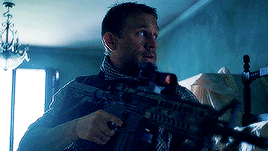
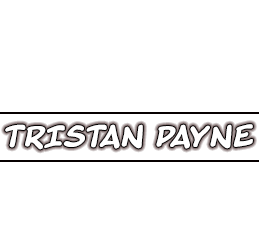


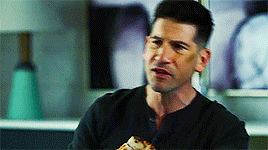

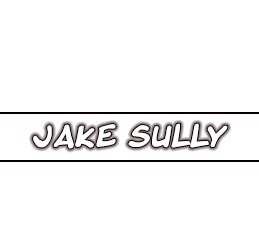
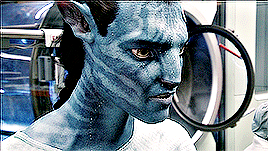
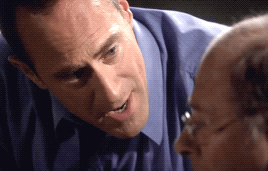


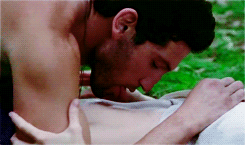





#{Starter call}#{Please specify muse in comments}#Come write with me- let's write- let's write away; Starter Call#Part of me most of me doesn't mind too much if this is how it ends. Because it's over anyway; Tristan Payne#Trust my rage; Loki Odinson#I Struggled For A Long Time With Surviving. And No Matter What You Keep Finding Something To Fight For; Joel Miller#I was a warrior who dreamed he could bring peace; Jake Sully - Tsyeyk Suli#There are worse things than dying. I wake up most mornings and I want it. I hope for it; Frank Castle#All it takes for evil to triumph is for good men to do nothing; Elliot Stabler#Now if y'all want to live if you want to survive you got to fight for it! I'm talking about fighting right here right now; Shane Walsh#As always he was alert for information. For lessons on how to be truly awake and involved in the world; Awake Muses
29 notes
·
View notes
Text
//You invite Lambda over for a sleepover and he shows up with a casket instead of a sleeping bag, what do you do?
#backup log {ooc}#//to clarify i mean that super modified one with the generator i talked about a long time ago#//bonus points if your muse deals with him shoving said big ass casket in their closet (if they have one)#//and with that i’m off to bed lol
9 notes
·
View notes
Text
so like… controversial opinion but… if you agree there should be more female muses or lesbians… uhh… write them?
#ooc. o kaptain.#[I totally get write what you want. but as a writer for a long long lifetime if you only write your specific niche… you will never grow as a#writer. if you only focus on what you yourself are obsessively interested in… it’s going to repel people from wanting to interact with you.#you literally can’t improve if you don’t move outside your comfort zone in a sane way. and frankly? I’m just off my ass exhausted about#going ‘man I wish I had more female muses to write with’ and getting a bunch of agreement. but no one ever actually writes women. much less#queer ones. and those of us who do just go 🙂 haha that’s nice thank you for being supportive. and it’s never going to change anything. and#that’s exhausting. but at some point? it’s honestly just so disheartening and practically upsetting that I’ve been here since I was 19 and#it has only become more and more voraciously malecentric. in a WILD way that’s completely unselfaware. half this community wouldn’t pass the#bechdel test which isn’t even a real actual thing more than the bare minimum. and frankly? as the writer of mostly female muses? it’s#shitty. it feels a lot like a consolation prize half the time just to be written with and that… sucks. I’m just talking honestly because#this? I hate it. I so hate it. it’s half the reason new interactions feel exhausting. because FINDING them is hard enough.]#negativity /#negativity in tags /
24 notes
·
View notes
Text
psa!!! i have moved to a new blog that i am currently keeping off the radar/off of tumblr recommended -- i worked out a system where i'm slowly following back the mutuals i have here once i finish writing the drafts i owe to y'all. which i feel is making it very nice and low pressure for me 😌
once i've whittled down my draft count, i'll switch the urls back over so that i'm at this url again... so no huge rebrand or anything, and it'll be back to business as usual! i expect it to be a process of another month or two, so for any of my mutuals i haven't followed just yet: if i've got one of your drafts cooking, i promise i'm getting around to it! and for any new followers, that just means a potential delay on me getting around to looking at your blogs until i'm officially moved over.
after the move, i am going to be more selective going forward in the sense that i want to keep a cleaner dash, as well as to be actively plotting/building dynamics/writing with mutuals. "writing" is last on that list because i will never judge reply speeds, ic or ooc!! i do however want to have some intial ooc back and forth, a foundation to build narratives upon, and some active interest in building character dynamics/rships.
i'll expand on all this when i make the move official!
#another day in yappersville ☀️ \` * file: OOC.#i was feeling stagnant on here + there was a lot of anxiety with some ooc conflict and in general negativity. fresh start HELPED sm#re: the actively building things with mutuals. i do not mind at all if we have only had a couple convos months ago/have one thread-#-or have smth planned that we haven't even started yet. if we have had even one ooc talk and smth to build on. we're solid!!!#but i do love character development and creating narratives and talking to ppl abt their muses. and i tend not to improvise threads#theres been times i feel like i've put in the energy and read Everything and threw out ideas/talking points and didn't get that back#and if im left on read or not rly given anything to work with. i will be honest. that does bum me out#during the last weeks on here ik i wasnt rly reaching out as much. and i'll be Changing that with the remake and a new environment!!#which means i potentially will have a quieter blog but that's not a problem for me. as long as im doing what i love!! which is shepard#well. writing him/talking abt him/putting him in a room with all yr muses. getting them into Situations together.#but also yes. (mike judge vc) i am Doing commander shepard#anyway yes long tags. and ive been almost radio silent on discord but given that month or two ill be back to the usual. heheheh#anyway. i will be breaking some mutuals at the end of working thru drafts/making the move. but it's less a 'we're over' thing and more a-#-'please follow only if you want to strike up a convo and talk/write/establish smth' type thing!#i promise my expectations for 'talk/write/establish smth' are not scary. just look at my reply speeds 😭😭😭#but yeah more on that later! see u all when i actually catch up on my drafts haha
14 notes
·
View notes
Text


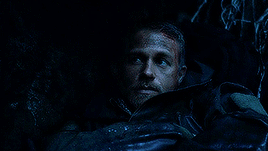
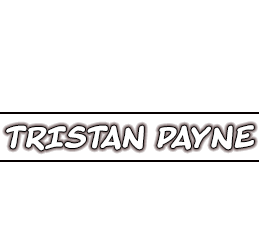



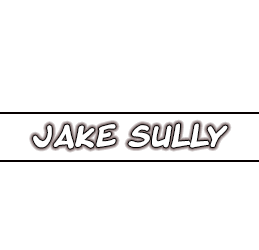
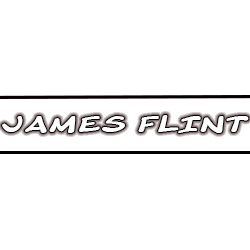

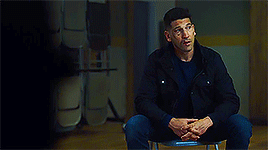



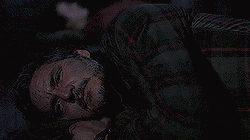


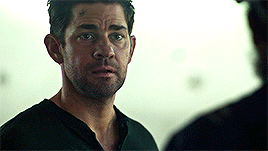



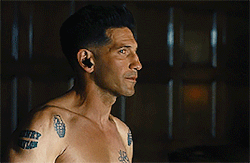

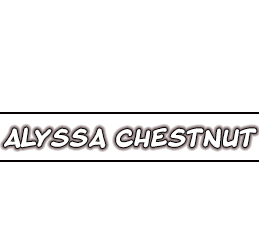


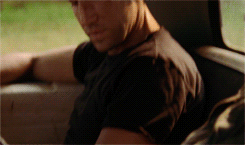

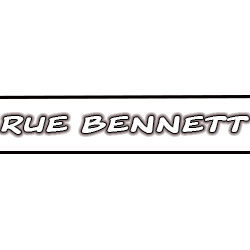

#{Starter call}#{Please specify muse in comments}#Come write with me- let's write- let's write away; Starter Call#As always he was alert for information. For lessons on how to be truly awake and involved in the world; Awake Muses#Part of me most of me doesn't mind too much if this is how it ends. Because it's over anyway; Tristan Payne#You're just a child with a temper. Haven't you heard don't hit a lady Kickin' your ass would be a pleasure; Orion Hastings#I can’t help myself. I see an opportunity- I take it. It’s a sickness; John Silver#This ends when I grant them my forgiveness. Not the other way around; James Flint#I Struggled For A Long Time With Surviving. And No Matter What You Keep Finding Something To Fight For; Joel Miller#The beautiful thing about getting high is that time ceases to exist; Rue Bennett#There are worse things than dying. I wake up most mornings and I want it. I hope for it; Frank Castle#I’m about to do something very bold in this job that I’ve never done before… try; Jim Halpert#Now if y'all want to live if you want to survive you got to fight for it! I'm talking about fighting right here right now; Shane Walsh#I'm not interested in being perfect. I'm interested in being real; Alyssa Max Chestnut#It ain't easy doing what we do but my honor will always stay true... Cause my heart bleeds blue; Cameron Piney#You once told me that our fingerprints don't fade from the lives we touch. Is that true or just poetic bullshit?; Riley Mann
7 notes
·
View notes
Text
/ Today I was thinking about my f.go multi and I was like damn- I haven't written in weeks/months in there as much as I've written in here for the last couple days
#;ooc#ooc#f.go will al wa y s be my goat and i slways come back to my multi there#but its funny to look back on it#ive felt so stuck with it for so long! i couldnt bring myself to write at all even when i wished to do so!#even with all the love and passion i have for each of my muses in there; it was like O#there were s o many things i wanted to reply to; but my own perfectionism and expectations got in the way each time#it was just -never- enough and i felt bad for making my rp partners wait for literally -anything- at all#but i just felt so... embarrassed? like that one meme 'this shit... is so a.ss..' AOEKROEOR#i was overwhelming myself with context and history in order to give my muses that respect i wished to give them#but in the process i pushed to the side the fact that;; it doesnt have to be perfect; it can be silly and a bit messy too#i felt so self conscious about it like; oh im an impostor for not having known about x having done x thing and so on so forth#loosing that thread of having fun with it basically; getting lost in the feeling of embarrassment and shame and perfectionism#which is funny bc the muses in this blog are also very heavily historically tied; but the difference is#ive decided one day that i didnt want to feel embarrassment;; and so i just blocked all those thoughts and started writing here again#even when it felt dull and choppy? bc thats the feeling u sometimes get when u dont write for a long time (been there a lot hehe)#even if i would be talking to the wall; i was like; but these guys are so cool- i wanna talk about them#if i dont; who will? where will i see them? creating the thing u want to see#and I've been having fun! i forgot writing could feel like that! i don't know for how long my energy can pull through but#i dont really care about that; or well; i care more about the fact im enjoying it as it is rn#i think having that click could totally help me with my f.go blog or any other blog#bc at the core of it all; there were a lot of things blocking me from writing; and i think now ive managed to untangle something;; a little#this is all to say that i miss a.rjuna; i heard an old song i had on his playlist today and i got teary eyed#anyways im just yapping ; late night yapping#SAME FOR MY OTHER BLOGS - WHEN I CATCH THEM- WHEN I CATCH THEM--#anyways im just vibing; wherever the inspiration takes me to im like yippepepeeeeeeeyayyyyy
7 notes
·
View notes
Text
work related question does anyone have any fun anime for likely 12-14 year olds that to their ulta-conservative conspiracy theory parents would have no objectionable content whatsoever that's not like . pokemon. i live in the most conservative area in michigan btw /hj
#gu6chan's musings#tl;dr so idk if i ever mentioned on this blog but i live in a very small town (less than 900 people in the TOWNSHIP which is like#...3? different towns? maybe 4)#i digress#and since i work in a public position its like#i've been trying to organise more community events this summer ESPECIALLY among the youth#and was like 'we can try appealing to hobbies; i think' and listed a couple suggestions like this and that#so i was talking to my higher ups about it and they were like 'OH! youre super into anime right'#and i was like 'uh... sure???' bc i hadn't seen ANYTHING in a hot second and am still stuck in 2008 so i dont know any new series#but they knew i was a bit of a nerd and weren't as acquainted being older so i can't blame them!! lol#anyways long story short there's been an anime club they've been trying to kickstart for like the last... 3 years?#for the local middleschool/highschool except they haven't been able to find any way to get the word accross#and i was like neato; cool; i'd love to help with that!! and told them i'd make a poster for it real quick (still haven't. work is tomorrow#so they gave me the login to crunchyroll (my first time using it) and were like 'go find some anime that kids might like!!! :)'#and i was like '...WOAH.' and told them it'd take a second bc this area is VERY conservative and there's a bit of cultural dissonance when#it comes to 'kid-appropriate' between japan and the US; particularly with nudity lmao#and a lot of even what's popular among kids (Chainsaw man; Jujutsu Kaisen i think?) wouldn't fly but ouaahahhgh#it still has to be entertaining to them and not feel like it's being 'dumbed down' i have a couple ideas like sailor moon; uhh....#cardcaptor sakura?#but those are mostly shoujo anime which is good!! But i'd also like to include some shounen-type stuff as well for balance ofc#and that's where the problem arises 😭 i'd also love to take a look at older anime since i'm still figuring out what the 'goal' of the club#is besides just having a place for kids to interact and make friends with each other like#do i want it to be based in looking at the history of anime as an art form and its evolution? should it be like a book club and more focuse#on discussing character arcs and writing? or maybe even linguistically based since I did mention wanting to help inspire kids to take up#different languages!! and i know a lot would love to learn japanese#but yeah a lot to figure out 😭 i might be cooked chat
11 notes
·
View notes
Text
I F.UCKING LOVE MEN IN SUITS!!!!!!!!!!!!!!!!!!!





#;dl#its why when i saw c.onstantine it was love at first sight- (well one of the reasons)#(big s.ucker for gentle looking men)#and i get that s.aito is wearing a simple suit with nothing that really stands out but that's also the point; like it fits his character#but im not going to ramble about how actually fitting it is for him now#THISIS ABOUT SUITS!!!! I LOVE SUITS MAN.....!!!!!#when i see s.ervants on ce wearing suits i go RABID#a very iconic one is a.rthur's; both the in-game one for white day and the one with the balloons#i also really loved w.ada a.rco's robin; it was a unique looking suit but it fitted robin so well#it was kind of sporty;;i dont know how to explain it#OH OR K.ARNA'S ONE- THAT ONE IS SOOOOOOO GOOD ICONIC#even g.il iconic f.uckass animal print ; u cant just not remember it if ur into f.ate#A.RJUNA WORE A FEW SUITS ON SOME CE'S TOO- and then vests#i love the silhouette they give; what can i say im a harlot for suits; I love the shape they give on the back and shoulders-#If i was able to enter the chamber of time for some random ahh reason#i would design suits for all my favs that dont have suits#and yes there are many other wonderful pieces of clothing but this time im especifically talking about suits#i need o.dysseus in a suit- a healthy need if i dare say so#there was one f.anart i once reblogged where he had one and i went insane#im now trying to think of who from my muses had been put on suits in official media#j.ason had a green one for a ce too#m.oriarty;; OH S.ALIERI..... OUGHHHHH S.ALIERI......#s.herlock has a vest ; i dont think the other part qualifies as a suit; he kind of just wears his cloak over#spiritually putting d.ante in a suit#WAIT NOW THAT I REMEMBER; R.EDROP DREW HIM IN A SUIT NOT TOO LONG AGO#talking about d.ante; d.antes has one constantly#there was this one a.rt buti cant remember if it was official; where they put a.rjuna in a silver-y/white suit with thin stripes and it was#SAUR PEAK#and k.arna had a black one
7 notes
·
View notes
Note
character crumpled (accidentally crushed your favs together sorry)

get crumpled idiot
#muse talk#anon#this was meant to be transparent but i think i exported it wrong WHOOPS#i was gonna do crumb too but this alone took SO long to render 😭#it will have to come at another time .#why he ourple
26 notes
·
View notes
Text

Kay so you may all thank @thesongbiird Mia but these men are the ones awake until someone sprays water in the face of other muses.






#{Out Of Sah}#Does anyone want a starter or memes from these gentlemen?#As always he was alert for information. For lessons on how to be truly awake and involved in the world; Awake Muses#Part of me most of me doesn't mind too much if this is how it ends. Because it's over anyway; Tristan Payne#We're in the homestretch of the hard times. We took a hard left but we're alright; Remy Payne#You're just a child with a temper. Haven't you heard don't hit a lady Kickin' your ass would be a pleasure; Orion Hastings#Now if y'all want to live if you want to survive you got to fight for it! I'm talking about fighting right here right now; Shane Walsh#There are worse things than dying. I wake up most mornings and I want it. I hope for it; Frank Castle#I Struggled For A Long Time With Surviving. And No Matter What You Keep Finding Something To Fight For; Joel Miller#{The Sah update no one asked for}
26 notes
·
View notes
Text
on a separate but related note, i wanna point out that part of chiyo’s journey is supposed to be finding love. it’s that thing of loving someone else is easier than loving herself, but in that love, she grows. she learns to not be so hard on herself. she learns that where she sees an ugly, overgrown garden, others see flourishing flowers. now!! that isn’t to say that platonic and familial love isn’t super important — it is!! so very much!! that’s why i want to try and build up the people around her so that i can think about how those relationships help her grow too. if not for them, chiyo would be so much worse off. there’s a lot about herself that she would always hide and stress about if not for her friends and family. she would hide away from the world itself if not for them.
but i just wanted to explain why sometimes i focus so much on romance as a concept with chiyo. i mean, i do just really enjoy shipping bc of the build up of that relationship. the development and journey is very rewarding bc it isn’t a smooth ride with chiyo 90% of the time. but pls know you are never obligated to ship with me, nor do i go in thinking you will automatically want to ship together. if i feel chemistry? yeah i may eventually say something or test the waters with a meme. but just as there’s no pressure if you want to ship, there’s no pressure if you don’t want to ship. i’m excited to write together no matter the kind of dynamic we decide on 💜
#this might sound disjointed bc i’ve been interrupted a million times trying to write it but i hope it makes sense#this has just been on my mind a lot off and on but in the past month especially#a lot of threads i prioritize end up being with mutuals i ship with and that’s just bc we’ve developed that relationship#or we’re long time mutuals/friends so i have more muse or it’s like writing something comforting bc rn i’m just stressed#but there’s a lot of mutuals i’m so excited to write with!!! and we don’t need to ship!!! pls don’t ever feel pressured!!!#this might end up being something only i’m concerned about i dunno#the other part is there’s a lot of guys vs gals on my blog rn and i stress about that like gimme your gals/feminine presenting muses rn 🔪#chiyo needs them in her life plssss#i’m extra slow to write atm but there’s so much buzzing in my brain so that’s why i just need to talk about it and make it clear ;v;#anyway i feel really disjointed and spacey so i’m gonna be quiet now and see about either watching arcane or playing lads#those are the comforts rn uvu#get ready to ramble | ooc
10 notes
·
View notes
Text
so like
im watching my first real episode of raw in like. i dont know how many months now. but its definitely helping me put the pieces together on why i like aew so much more
this is an entertainment show more than its wrestling. they tell their stories by talking, having extra segments instead of just going to the ring and telling the story with their wrestling and bodies. it feels like they need to justify every fight with words before so people watching understand why its happening
they dont trust the wrestling to tell the story on its own. they dont trust the audience to understand the story and themes underneath unless its explicitly told to them by someone on camera and/or holding a microphone
yeah sometimes you get "random" matches in aew. but they always have something going on and tell the story in that ring. and sometimes they dont have to do that cause its solely about the wrestling, as it should be
idk. i just like the wrestling aspect of wrestling and aew is definitely delivery much more on that than wwe does and thats what it ultimately comes down to with me honestly
#that being said. outside of ppvs i do think wwe delivers good wrestling most of the time#just watched sami zayn and miz go at it and it was good. legit. but also they couldnt just make this match. they needed a segment to show#why it happened. and idk. that just got me thinking#like i understand the stories are also important. but sometimes you dont have to justify a good match up with extra pieces of content#you know what i mean?? we could have just had this cause its a wrestling match and done deal. no need for the minutes of backstage talk#idk. i just like it when things arent spoonfed to me like im five years old watching a condescending fireworks show#..also fuck this show is two and a half hours long and its only had five matches and what if i throw up#wrestling musing
9 notes
·
View notes
Text
@serabellyms // plotted for a starter.

if it were up to him, shepard would have long left the Citadel by now. But Captain Anderson and Udina are still in talks... about what, he has no damn clue. (If it were Shepard who had command of the Normandy, he would have dragged any information on Saren out of Udina, political niceties be damned — why forward it to the ambassador, anyway? isn't it Shepard that answers directly to them now? at every turn, the Council seem to hinder him more than they're helping him — and taken off as soon as the Council had declared him a Spectre. But he's guessing that's probably one reason he isn't in Anderson's shoes.) C-Sec Requisitions, too, are dragging their feet with the new prototype equipment that's supposed to be en route to the Normandy.
Between the interruptions, they've been informed that they can expect to be ashore for about a half a day more. Shepard isn't all that surprised, considering the involvement from both Udina and Citadel Security Services.
Shepard's never been interested in tourism. If he were at any other post or on any other planet, he would have lingered near the Normandy if he weren't already aboard it. But there's a first for everything. This is the Citadel, after all. And while the Presidium Commons aren't his cup of tea — too quiet and bright and much, much too clean, almost uncomfortably so — escaping the Presidium is quick work via rapid transit.
He's not exactly sure where exactly he got off the shuttle, but it's dense and it's most certainly commercial. The sidewalks are bustling, and the endless sprawling of sights and entertainment is impressive: a vast improvement to the numbing tranquility of the Presidium.

He finds a bar at the end of a nearby street. If he were on shore leave, he might have gone ahead and drunk himself stupid. After all, how else should one celebrate this... new responsibility? (He supposes that's all it is. For all that Nihlus spoke of the unfettered freedom that Spectres enjoy, Shepard is still little more than a sitting duck while Saren runs wild doing God knows what and God knows where. So the Council finally believed him — big deal. Until they've got Saren in cuffs, calling this a celebration seems premature.)
He turns the freshly opened bottle of beer on the counter before him. Even if there's little actual accomplishment to celebrate, having his first drink as a Spectre alone sounds like a miserable idea. But there isn't anyone in particular he wants to share a drink with. Except...
A few taps on his omni-tool, and — location sent. He goes back to turning his beer in hand, feeling oddly contemplative. (It occurs to him that maybe Williams would appreciate some context with the message. But, honestly, it's easier for him if she doesn't show.)
#serabellyms#serabellyms; muse — ashley williams#sorry this took so long!!! my brain is. mush. anyway i know we talked drinks later on and before virmire but#thinking about first normandy interactions with ashley in my playthrough where she's rightfully pissed that he almost doesn't let her come-#-to get the beacon after they run into her. shepard rectifies that but. i feel like More is needed there. (a real apology maybe?? who knows#we can 100% time skip to later me1 once this interaction runs its course but i do wanna smooth out their rough start. feels right#lmk if that works!! Everything is subject to change if need be#verse ›› ˋhere's another saying; go to hell!ˊ 〈 mass effect 1 〉#just like old times. \` * file: IN CHARACTER.
9 notes
·
View notes